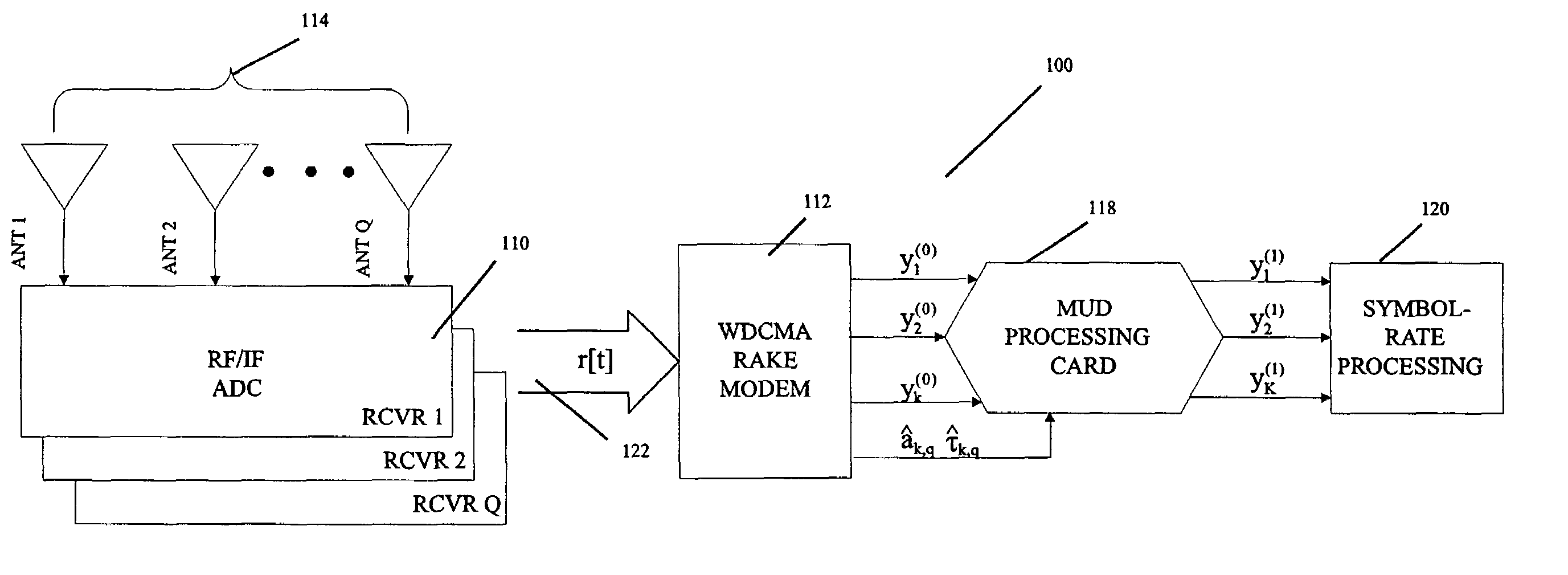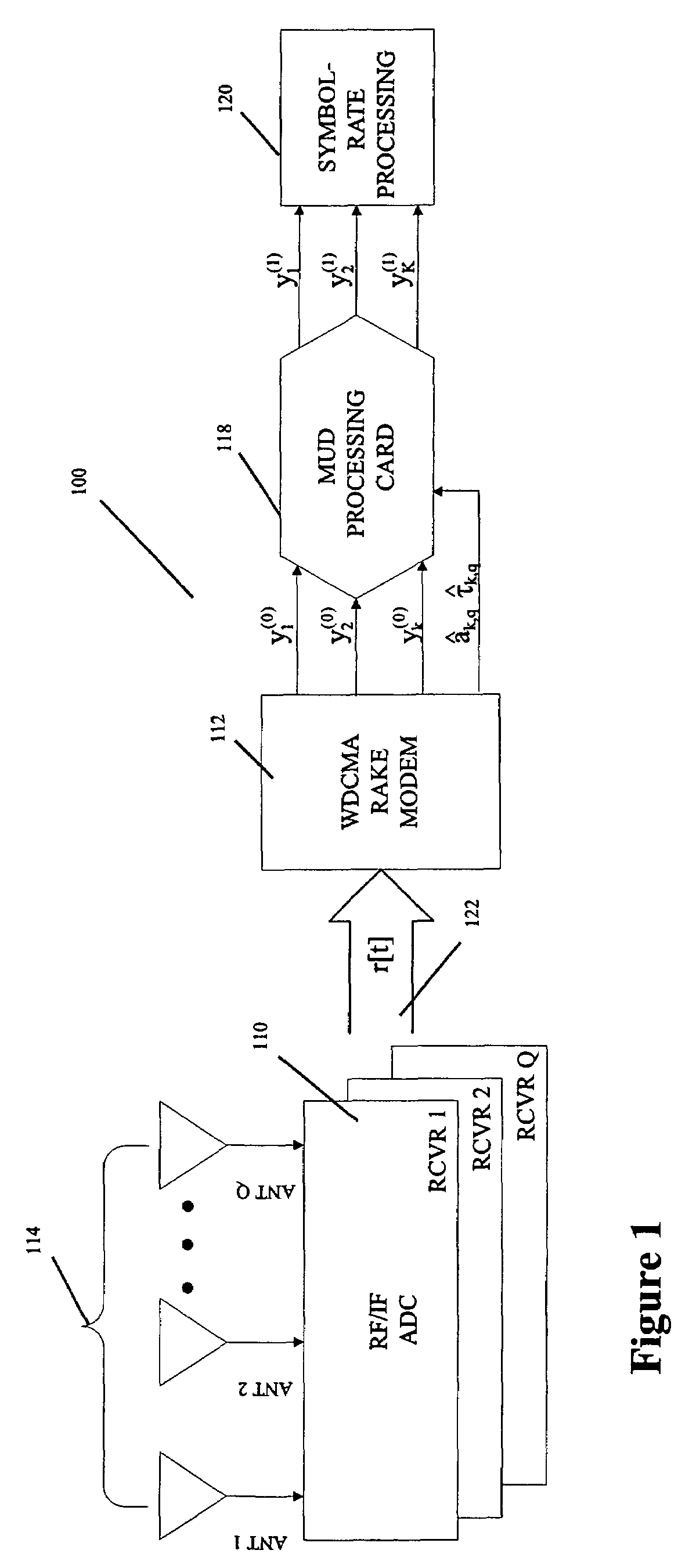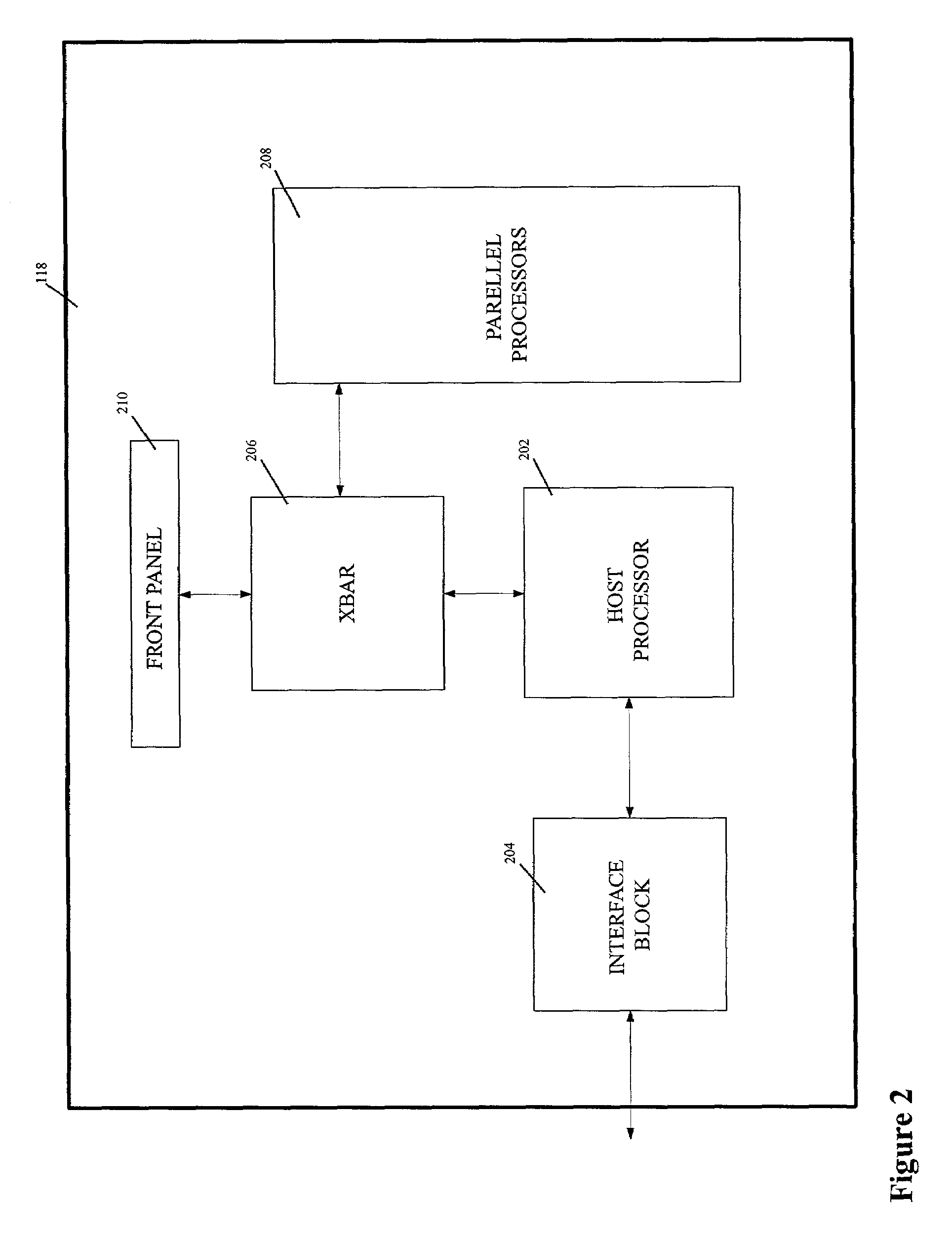Wireless communications systems and methods for multiple processor based multiple user detection
a technology of multiple processors and wireless communications, applied in the field of wireless communication, can solve the problems of driving service quality below acceptable levels, limiting the capacity of cellular phone base stations, and cdma factoring, and achieve the effect of efficient computing a -matrix
- Summary
- Abstract
- Description
- Claims
- Application Information
AI Technical Summary
Problems solved by technology
Method used
Image
Examples
Embodiment Construction
[0120]A more complete understanding of the invention may be attained by reference to the drawings, in which:
[0121]FIG. 1 is a block diagram of components of a wireless base-station utilizing a multi-user detection apparatus according to the invention;
[0122]FIG. 2 is a block diagram of components of a multiple user detection processing card according to the invention;
[0123]FIG. 3 is a more detailed view of the processing board of FIG. 2;
[0124]FIG. 4 depicts a majority-voter sub-system in a system according to the invention;
[0125]FIG. 5 is a block diagram of an integrated direct memory access (DMA) engine of the type used in a system according to the invention;
[0126]FIGS. 6 and 7 depict power on / off curves for the processor board in a system according to the invention;
[0127]FIG. 8 are an operational overview of functionality within the host processor and multiple compute nodes in a system according to the invention;
[0128]FIG. 9 is a block diagram of an external digital signal processo...
PUM
 Login to View More
Login to View More Abstract
Description
Claims
Application Information
 Login to View More
Login to View More - R&D
- Intellectual Property
- Life Sciences
- Materials
- Tech Scout
- Unparalleled Data Quality
- Higher Quality Content
- 60% Fewer Hallucinations
Browse by: Latest US Patents, China's latest patents, Technical Efficacy Thesaurus, Application Domain, Technology Topic, Popular Technical Reports.
© 2025 PatSnap. All rights reserved.Legal|Privacy policy|Modern Slavery Act Transparency Statement|Sitemap|About US| Contact US: help@patsnap.com



